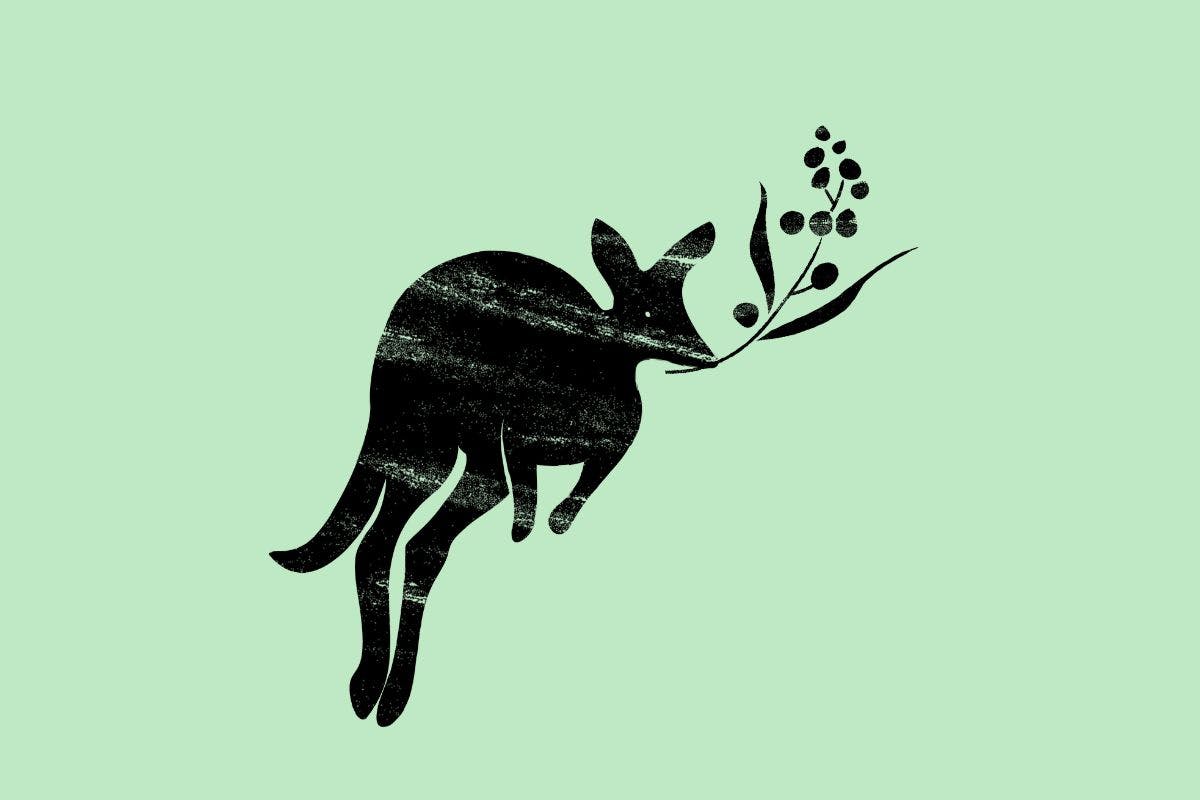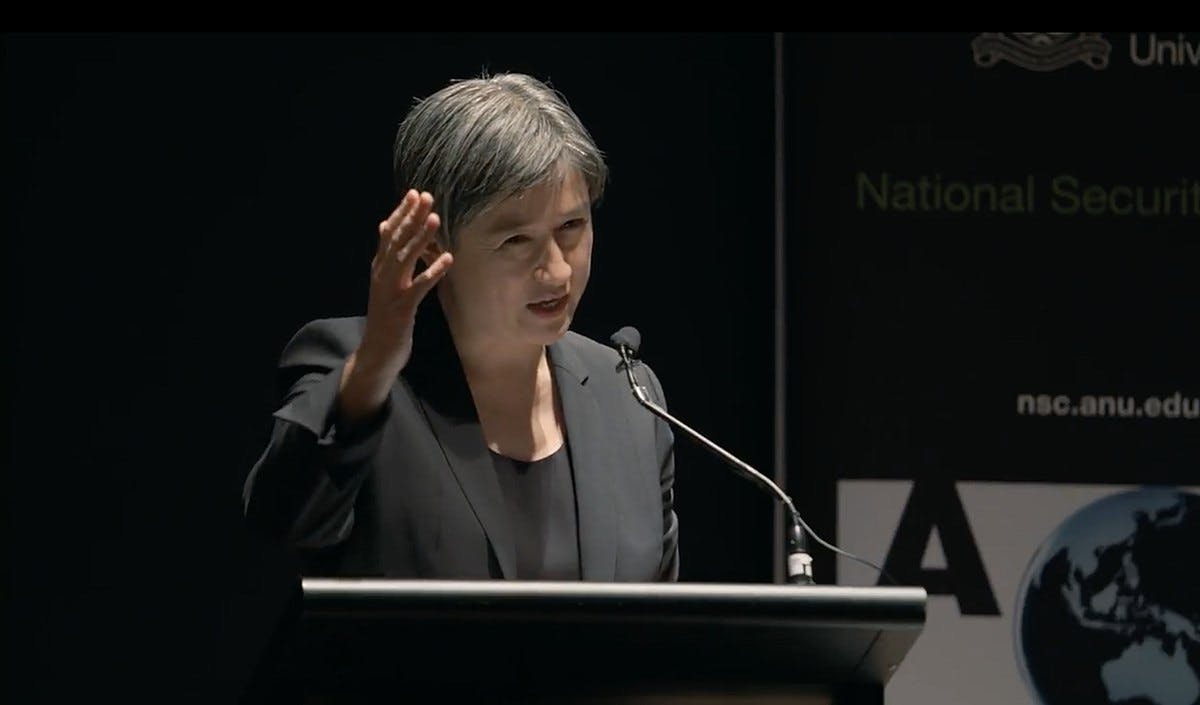Published: 15 April 2024
Last updated: 15 April 2024
The Federal Government is considering growing calls for the appointment of an antisemitism co-ordinator, in response to the increase in antisemitism since October 7.
The Jewish Independent was among the first organisations to call for Australia to create an antisemitism co-ordinator position. We argue that it is incumbent upon the Australian government to protect the Jewish community and that in doing so it will also protect all Australians from the evils that always accompany antisemitism: hate, violence, xenophobia, the tyranny of the majority and the loss of inclusion, equality and legitimacy that are at the core of our democratic society.
This policy paper explains our call for the appointment of an antisemitism coordinator to spearhead a national response to the threat of rising antisemitism which is a fundamental affront to Australia’s values and its citizens.
Sufficient evidence that Australia has an “antisemitism problem”, particularly online and on campuses[1] which existed prior to the October 7 Hamas massacre in Israel. The problem has skyrocketed since the attack and subsequent Israel-Hamas war in Gaza. Research by the Executive Council of Australian Jewry (ECAJ) found a 738% increase in antisemitic incidents in the two months following October 7 2023[2].
Widespread antipathy to Jews since and spilled into public, educational, cultural and online spaces. The Jewish community comprises less than 0.5% of Australia’s population. It is a community reeling in shock from both the violent attack on Jews in Israel and the growth of hate on our doorstep. Jewish organisations currently shoulder almost the entire burden of monitoring and fighting antisemitism.
Antisemitism threatens a small and vulnerable section of Australia’s population directly. But it has wider implications in attacking the social cohesion of Australian society as a whole. Historically, antisemitism has often been the “canary in the coalmine”, an indication that shared values in a society are breaking down and that hate and violence are increasing.
It is the responsibility of government to ensure the security and equal treatment of all Australian citizens and to protect the health of Australian society. The appointment of an antisemitism coordinator would enable Australia to step up and fight this growing threat to our society.
Key Points
- A national antisemitism coordinator serves as an official contact for Jewish community organisations, government departments and agencies (such as Office of the eSafety Commissioner) and can chair an interagency or interstate working group.
- The coordinator can play an outreach and educational role with other institutions, universities and community groups to promote social cohesion.
- Monitoring and research on antisemitism requires national intervention, in addition to that undertaken by Jewish researchers and organisations.
- In May 2022, the UN Special Rapporteur on Freedom of Religion or Belief called for all governments to appoint an antisemitism coordinator or envoy. Australia is noticeably absent from the international community of ‘like-mindeds’ that already have appointed such positions.
- Appointment of a national coordinator is important recognition that Government acknowledges and takes antisemitism seriously and recognises it as a threat to Australian society.
What is an antisemitism coordinator?
An antisemitism coordinator or envoy is an individual appointed by government or institution, mandated to address the issue of antisemitism. The role can be compared on the international level to a UN Special Rapporteur: an independent expert appointed to report on a specific or thematic human rights issue.
The terms of reference can include engaging in advocacy and raising public awareness; public statements; documenting threats and violations; conducting thematic studies; convening expert consultations; participating in relevant seminars and conferences; organizing consultations with civil society and government at the national, regional and international levels; developing standards and guidelines or a National Strategy; and overseeing monitoring and reporting of antisemitism.
Examples of work by antisemitism coordinators:
- In the US, the antisemitism envoy oversees the US National Strategy to Counter Antisemitism which sets out specific commitments by US agencies and departments such as to incorporating information about antisemitism into federal Diversity, Equity, Inclusion, and Accessibility (DEIA) training programs; disseminate model resources for unions on how to recognize antisemitism; launch an Antisemitism Awareness Campaign aimed at raising awareness among educators, students, parents, and school communities; using the President’s Committee on the Arts and Humanities to build cross-community solidarity and collective action to counter hate to bolster social cohesion in America.
- In the EU, the coordinators facilitated the development of a unanimous Declaration on Antisemitism and the Promotion of Jewish Life in 2019, and subsequent EU Strategy on Combating Antisemitism and Fostering Jewish Life (2021 - 2030) which provides both specific undertakings for the European Commission and recommendations to Member States.
- The EU envoy chairs the interagency European Commission Working Group on antisemitism and convenes biannual meetings with a range of actors, government, relevant ministries, national Jewish representative bodies, relevant international organizations, and experts to explore best practices and develop tools for combating antisemitism. Meeting agendas have typically focused on a particular problem.
- In the UK, the envoy helped convene a meeting between major Jewish groups and the Home Secretary to address the dramatic rise of local antisemitic incidents during the May 2021 Israel-Gaza war and has created a UK university taskforce.
- In Germany the envoy continues to secure funding for the Federal Association for Research and Information on Antisemitism (RIAS), nation-wide data collection on antisemitism.
- Across the world, antisemitism coordinators converge in different formats, including the recent Inter-Parliamentary Task Force to Combat Online Antisemitism. In addition to sharing experience and information, the most pervasive form of antisemitism – online – is one that requires a coordinated international response as it transcends national borders.
The international arena
Antisemitism coordinators already exist in many countries that share Australia’s values.
Rising antisemitism violence and hate speech in the US and Europe, and creeping antisemitism in global forums such the UN’s Durban conference on Racism in 2000, created momentum for the US[3], UK[4] and European Union[5] to take action.
That momentum has spread internationally, and antisemitism ‘envoys’, ‘coordinators’, ‘special’ or personal representatives or ‘Ambassadors’ are official positions appointed in:
- Countries: Greece; North Macedonia, Portugal, France, Israel, Lithuania, Bulgaria, Luxembourg; Germany, United States, Argentina, Switzerland, Croatia, Norway, UK, Austria, Romania, Denmark, Spain, Italy, Czech Republic, Estonia, Hungary, Sweden, The Netherlands, Paraguay.
- International institutions: European Commission, OSCE, UN University for Peace, UN Special Rapporteur on Freedom of Religion or Belief, Council of Europe, Organisation of American States.
In May 2022, the UN Special Rapporteur on Freedom of Religion or Belief called for all governments to appoint an antisemitism coordinator or envoy[6] and adopt the IHRA definition which can also serve as an educational tool.
The Australian context
On 3 October 2022, Australia signed a Joint statement on combating antisemitism and online hatred[7] noting “We are deeply concerned by the prejudices that are incited by conspiracy theories, often targeting Jewish communities. …We pledge to counter hate speech and Holocaust denial and distortion online.”
This paper doesn’t delve extensively into the antisemitism research that exists in Australia, largely undertaken by Jewish community groups or academics but a few key recent surveys indicate trends that are comparable to the international experience:
- Research by the Online Hate Institute found a five-fold increase in online antisemitism between between October 21, 2023 and February 8, 2024 comparing with the 1 months before October 7.
- A survey designed by Blueprint Institute and conducted by YouGov released in February 2024, suggest an average of approximately 75,000 antisemitic incidents per year in government schools (primary and secondary) across the country.
- A nationwide survey of Australian university students released in August 2023 revealed widespread antisemitism on Australian university campuses with 64 per cent of Australian Jewish university students have experienced antisemitism at university and 88% saying that they experienced in the 12-months preceding the survey. It further found that university staff were identified as active participants on 29% of occasions and around 70% said antisemitic behaviour was ignored by staff members. Those who did not complain identified many barriers to submitting a complaint. The top two barriers included: a belief that complaining would not make a difference (61%); and that the university would not think the incident was serious enough (48%).
- The Plus61J survey ‘Crossroads 21’ on attitudes in the Australia community to Israel, Jews and antisemitism with a total of 3,459 found close to one-in-five indicated that they ‘knew a great deal’, 45% that they knew ‘something’, while 30% knew ‘little’ or ‘virtually nothing’ about the Holocaust.
- ECAJ analysis of current trends in antisemitism indicate antisemitism at both ends of the political spectrum. A burgeoning neo-Nazi movement is active across Australia, as explored in a recent media investigation[8]. At the other end of the political spectrum, ostensibly left-leaning, progressive groups, including so-called “anti-racism activists”, are mainstreaming antisemitism and/or actively undermining the fight against antisemitism. Many wrongly see antisemitism as existing only in far-right circles, and ignore antisemitism emanating from other sources. Others falsely perceive Jews as wealthy and powerful, and therefore excuse any attacks on Jews as “punching-up”, and not as racism. Some ignore anti-Israel discourse which crosses the line into hateful conceptualisations of Jews.
- Australia’s take down rates for antisemitic social media content rates poorly against that, for example, of the European Union (10% compared to 64.4%)[9].
The pervasive feeling in the Australian Jewish community is that it has been ostracised by national diversity and multicultural forums which have denied or ignored Jewish experience
Why current forums are insufficient
Generic anti-racism and anti-discrimination laws are insufficient alone to address antisemitism, leaving much to legal definitions and individual cases while failing to provide preventative or educational measures.
The complex history of the Jewish people, the interplay between religious, cultural and national identity and the integrated relationship between Israel and the Diaspora make antisemitism a multi-layered phenomenon with special needs. The Jewish community is uniquely vulnerable: the only community in Australia whose places of worship, schools, communal organisations and community centres routinely require high fences, armed guards, metal detectors, CCTV cameras.
The ideological context has isolated antisemitism from other forms of racism and hate. The anti-racism space is actively severing antisemitism from race discourse, claiming Jews are ‘white’ and ‘colonisers’ and therefore can’t be victims of discrimination or race hate.
The pervasive feeling in the Australian Jewish community is that it has been ostracised by national diversity and multicultural forums which have denied or ignored Jewish experience, including by ignoring the documented horrific sexual violence against Jewish women in Israel during the October 7 attack. This ostracisation has permeated national institutions intended to protect against antisemitism, which have recently consulted on Palestinian and Muslim rights without holding equivalent meetings about antisemitism.
An effective approach to antisemitism requires an understanding of the specifics of hate directed at Jews, including the lines between criticism of Israel and delegitimization of Jewish experience, history and national rights.
The IHRA non-binding working definition of antisemitism was developed in 2006[10] to identify and name modern antisemitism.
Australia adopted the IHRA definition in 2021, and it is the definition used by most professionals working in the field of antisemitism, as well as that used by international antisemitism coordinators.
The IHRA definition offers a comprehensive description of antisemitism in its various forms, including hatred and discrimination against Jews, Holocaust denial, and antisemitism as it relates to Israel. It provides a framework for understanding and countering antisemitism that could be used to shape the scope of an antisemitism coordinator.
Understanding antisemitism also requires listening to the lived experiences of Jewish Australians. This approach avoids strict definitions and accommodates the threats felt by cumulative insults, ‘gaslighting’ and intimidating behaviours intended to affect the ability of Jews to feel safe in public spaces, events or online. Listening to lived experience puts antisemitism on par with other kinds of hate and abuse such as racism and sexual harassment, where the focus is not on the intention of the perpetrator but on the victims’ experience.
What about Islamophobia?
Hatred directed towards Muslims is a separate and important issue which should concern all Australians, and many Australian Jews are also worried about increasing Islamophobia.
Antisemitism and Islamophobia are separate issues with different causes, manifestations and needs. Internationally, the appointment of officials to address Islamophobia is less common than the appointment of antisemitism co-ordinators. In a couple of appointments, the roles are combined but this approach is very much the exception and fails to address the specific issues of each group.
The need for mechanisms to address Islamophobia is beyond the scope of this paper.
Integrating the role
Appointing an antisemitism coordinator doesn’t replace the valuable work done by a range of Jewish communal organisations and individuals but bring its perspectives to government policy, educational initiatives and broader outreach to a range of government-supported actors.
A national coordinator could lead a team comprised of coordinators at state and territory levels.
Australia could and should be at the table with antisemitism coordinators and envoys around the world who meet regularly.
Footnotes
[1] Plus61J is supported the Online Hate Institute’s Three-Month Intensive Antisemitism Research Project into online antisemitism in Australia since November 2023. https://thejewishindependent.com.au/exclusive-new-study-shows-five-fold-in-online-antisemitism-since-october-7
[2] https://www.ecaj.org.au/preliminary-statistics-concerning-surge-in-antisemitic-incidents-following-hamas-atrocities-in-israel-on-7-october-2023/
[4] Report of the All-Party Parliamentary Inquiry into Antisemitism: Government Response 29th March 2007
[5] Appointment of European Commission Coordinator on combating antisemitism and fostering Jewish life in December 2015.
[6] Follow-up Action Plan for Advancing the Implementation of the Recommendations of the UN Special Rapporteur on Freedom of Religion or Belief in his 2019 Report to the UN General Assembly (A/74/358) Recommendation 2b. Governments that have not done so should appoint a Special Envoy or national coordinator of domestic efforts to monitor and combat antisemitism and ensure that the official’s responsibilities include coordinating and regularly engaging with Jewish communities and with other national and international actors focused on combating antisemitism. Governments should ensure that other national mechanisms to promote freedom or religion or belief, tolerance, and diversity explicitly include the fight against antisemitism in their respective mandates.
[7] https://www.dfat.gov.au/international-relations/joint-statement-combating-antisemitism-and-online-hatred-3-october-2022
[8] https://www.theage.com.au/nazis-next-door
[9] Online Antisemitism in Australia 2023 By Andre Oboler and Jasmine Beinart, p. 17
[10] Summary of definition. Examples are provided in the document. “Antisemitism is a certain perception of Jews, which may be expressed as hatred toward Jews. Rhetorical and physical manifestations of antisemitism are directed toward Jewish or non-Jewish individuals and/or their property, toward Jewish community institutions and religious facilities.” Manifestations might include the targeting of the state of Israel, conceived as a Jewish collectivity. However, criticism of Israel similar to that levelled against any other country cannot be regarded as antisemitic. Antisemitism frequently charges Jews with conspiring to harm humanity, and it is often used to blame Jews for “why things go wrong.” It is expressed in speech, writing, visual forms and action, and employs sinister stereotypes and negative character traits.





Comments2
Ron Spielman16 April at 11:46 am
Surely “antisemitism coordinator” is an inappropriate title for the proposed office. Do we want a coordinator OF antisemitism ?? A coordinator of opposition TO antisemitism, yes.
All the quoted similar roles internationally clearly encompass this point.
Steven Rosenberg16 April at 05:46 am
Ruh roh. Randa won’t be happy.